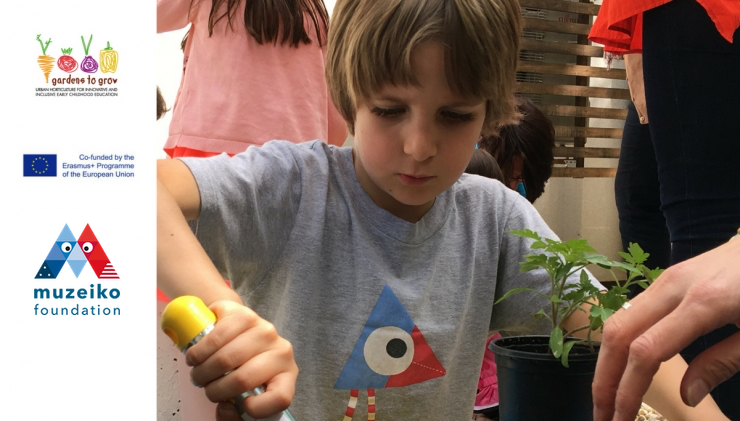In what way could edible vegetable gardens be transformed into spaces that are suitable for learning? Is it possible that from the earliest age children are able to comprehend how the principles of agriculture work and are in a position to grow plants on their own? Can education be accessible to all?
The answers to these and other questions are sought by the experts who are engaged in the activities pertaining to theGARDENStoGROW project that are co-financed by the European program Erasmus+. Leading organizations from four countries are included in the project: Italy, Northern Ireland, Spain and Bulgaria, among which children’s museums, kindergartens, universities, and research centers.
Among the main aims of the project are creating hands-oneducational gardens as well as developing practical coursesthat include methodological instructions for teachers and educators from kindergartens and primary schools that have to do with the setting up and maintenance of hands-on educational gardens on site.
Applying the activities for the project will make it possible for children aged between 0 and 6 years to acquire basic, civic, and multidisciplinary skills. It is expected that the educational gardens established within the auspicesof the partner structures pertaining to theGARDENStoGROW project will become centers where gardening and the knowledge about it constitute a primary topic for meetings, sharing of experiences, and inspiration for children, teachers, and families.
The project is founded on four intellectual achievements (IO 1-4):
- IO1 GARDENStoGROW Inventory: Inventory of the educational vegetable gardens established in schools and other organizations, including details regarding the requirements and needs for trainings and skill developmentfor teachers and school managers who would be interested in setting up vegetable gardens in their schools;
- IO2 GARDENStoGROW Methodological pointers: General methodological guidelines for developing gardening materials for training and gardening courses for teachers who work with children in preschool;
- IO3 GARDENStoGROW Educational materials and training course: Gardening materials for training and gardening courses for teachers who work with preschoolers;
- IO4 Innovative practices that aid the learning process, at accessible prices, inclusive and open to all educational vegetable gardens for the youngest children (Early Childhood Education and Care ECEC): online catalogue containing recommendations and best practices for the development of educational gardens, which fit into the paradigm for creating friendly and accessible learning spaces.
GARDENStoGROW will also offer two training activities: one taking place in Italy– Explora and the other in the United Kingdom– South West College; 4 repeatable events for dissemination and popularization of the research outputs, 4 international meetings pertaining to the project, and 5 activities covering the managing and the execution of the project plan.
Duration of the project: 01/09/2017-29/02/2020 (30 months).

